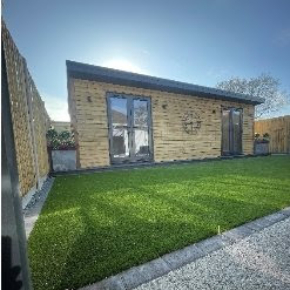
Ideal Heating: Five things you need to know about natural refrigerant heat pumps
‘Heat pumps are a widely suitable and cost-effective solution for decarbonising the UK’s buildings and are vital to delivering Net Zero’ states the UK government in its ‘Heat Pump Investment Roadmap – Leading the way to net zero’ published in April 2023. That’s because heat pumps reduce the reliance on fossil fuels, produce zero local carbon emissions, and can be up to 400% more efficient than traditional boilers. Heat pumps utilise the free energy in the air to heat water, even when that air temperature is as low as -20⁰C. When heat pumps are partnered with a renewable electricity supplier, heat generation is 100% carbon neutral. Ideal Heating has more…
The role of refrigerants within heat pumps
All heat pumps require a refrigerant, a bit like a fridge, but in reverse. In a heat pump, a fan passes ambient air over extremely cold liquid refrigerant. The refrigerant captures the heat from the ambient air and becomes a warm vapour. That warm refrigerant vapour passes through a compressor which produces hot refrigerant and usable heat. The heat in the hot refrigerant is then transferred to the heating and hot water system through a heat exchanger.
After the heat is transferred the refrigerant passes through an expansion valve which reduces its temperature, making it really cold again and enabling it to capture heat from the ambient air, continuing the cycle. It’s a neat solution and one that has been used successfully for many decades, only not until relatively recently in the UK.

The move to natural refrigerants
With heat pump technology being over 150 years old, there has understandably been a variety of different refrigerants used over the years. In the past three decades, the most popular have been R407c, R22, R410a and R32. But, as we have become more aware of the negative environmental impacts of many of these older refrigerants, the industry is moving to natural refrigerants in the form of R290 (Propane) and R744 (CO2). These are refrigerants that occur naturally, as opposed to those that are synthetically made.
Ideal Heating Commercial has recently expanded its own ECOMOD commercial heat pump range to include natural refrigerants; the new models are ECOMOD 290HT with outputs of 15 – 50kW, and ECOMOD CO2 & CO2Q with outputs of 65-130kW.
But with any change comes apprehension, and the word ‘natural’ has left many people assuming these refrigerants will not be as effective as their synthetic counterparts, which is far from the truth. That’s just one of the misconceptions surrounding natural refrigerant based heat pumps, but there are plenty more…
Here are five of the most frequently misunderstood aspects of natural refrigerants and shed some much needed light…
Five things you need to know about natural refrigerant heat pumps
1: Performance
Contrary to what you might think, natural refrigerants are able to perform better than synthetic alternatives in heat pumps for two key reasons. Firstly, they can achieve higher coefficient of performance (COP), making them more efficient. COP is the ratio of heat produced, relative to each unit of electricity consumed in the heat pump. Secondly, natural refrigerants can produce higher temperatures, making these heat pumps ideal for heating water. Our ECOMOD 290HT, for example, can achieve a maximum flow temperature up to 75°C. That said, designing a heating circuit to 55°C would make the system much more efficient, in line with the most recently published Building Regulations Part L.
2: Environment
Refrigerants are allocated a Global Warming Potential (GWP); those with a high GWP are extremely potent greenhouse gases that warm the planet. Older, synthetic refrigerants nearly all have a high GWP, and we expect them to eventually be phased out. R410a, for example, has a whopping GWP of 2088. Compare that to R290 at 3 and CO2 at just 1 and you can clearly see why natural refrigerants are the environmentally friendly option.
3: Total cost of ownership
Moving to natural refrigerants is not only good for the planet, but also makes commercial sense now and in the future. As far as the present day is concerned, synthetic refrigerants are already more expensive than natural ones as the manufacturing process is more complex, and they are subject to the F-gas phase down. As their production declines, high GWP refrigerants will become increasingly scarce and therefore more expensive. Furthermore, over the life of the heat pump, if you opt for a high GWP refrigerant heat pump now, you may find yourself in the costly and inconvenient position of having a potential stranded asset in the not too distant future.
4: System design
If you can design a heat pump system which utilises a synthetic refrigerant, then you will have no trouble in doing the same with most natural refrigerant heat pumps. The system design for R290 in particular is straightforward.
In fact, a natural refrigerant heat pump system often requires less amendment to the hot water cylinder, as they do not require immersion heaters for anti-Legionella cycles due to the higher temperatures which are achievable.
5: Training
As with all refrigerants and heat pump installations appropriate training is required. If you have already undertaken heat pump training, then the good news is that no additional training is necessary for fitting R290 heat pumps (although product specific training is always highly beneficial).
However, heat pumps that use CO2 have a higher Delta T return temperature, so the system design differs slightly. Whatever training you do undertake, be sure that it includes both theory and practical, hands-on training.
Ideal Heating provides commercial heat pump training free of charge via our Expert Academy training team. We also strongly urge heating engineers to consider BPEC accredited training on heat pumps, which is recognised as a demonstration of competence for the Microgeneration Certification Scheme (MCS). It provides the foundation knowledge required to correctly install heat pumps in line with industry best practice and guidelines.
Natural refrigerant heat pumps are undoubtedly the way forward when it comes to commercial heating and hot water. They tick all the boxes, sometimes outperforming synthetic refrigerants, with their low GWP, getting us one step forward to that important net zero goal.
Ideal Heating Commercial is the UK’s market leader of high efficiency commercial heating solutions, which include the ECOMOD range of heat pumps.
https://idealcommercialboilers.com/products/ecomod
Visit Supplier's page
Latest news

30th April 2025
Digital Construction Week announces seminar programme for its landmark 10th edition
Digital Construction Week (DCW) returns to ExCeL London on 4 – 5 June 2025 with its most impactful programme yet. It brings together the best and brightest from across AECO, for two days of practical learning and idea sharing.
Posted in Articles, Building Industry Events, Building Industry News, Building Products & Structures, Building Services, Building Systems, Exhibitions and Conferences, Information Technology, news, Restoration & Refurbishment, Retrofit & Renovation, Seminars
29th April 2025
Senior pledges to ‘bee’ part of the solution with new biodiversity initiative
Senior Architectural Systems has installed its first on-site beehive, marking another step forward in its commitment to sustainability and biodiversity.
Posted in Articles, Building Industry News, Building Products & Structures, Building Services, Curtain Walling, Doors, Glass, Glazing, Innovations & New Products, news, Restoration & Refurbishment, Retrofit & Renovation, Sustainability & Energy Efficiency, Walls, Windows
29th April 2025
West Fraser range delivering key benefits for South-East carpentry company
An experienced carpenter and building site manager who has recently set up his own company is using high performance panel products from the West Fraser range.
Posted in Articles, Building Industry News, Building Products & Structures, Building Systems, Case Studies, Garden, Restoration & Refurbishment, Retrofit & Renovation, Sustainability & Energy Efficiency, Timber Buildings and Timber Products
29th April 2025
CPD Courses Available Online From Ecological Building Systems
Ecological Building Systems, a leading supplier of natural building products for sustainable construction, has revealed its comprehensive CPD programme for the year ahead.
Posted in Articles, Building Industry Events, Building Industry News, Building Products & Structures, Building Services, Continuing Professional Development (CPD's), Information Technology, Innovations & New Products, Insulation, Restoration & Refurbishment, Retrofit & Renovation, Seminars, Sustainability & Energy Efficiency, Training, Walls, Waste Management & Recycling
 Sign up:
Sign up: